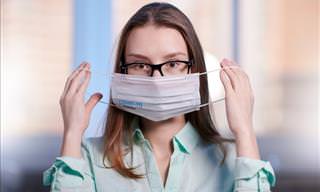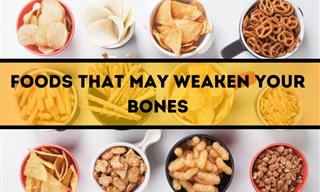Cataracts are sometimes considered a normal part of growing older. Indeed, this eye condition is incredibly common, especially in older adults, affecting more than half of all adults past 70. But innocuous it is not, no matter what you’re told. For example, did you know that cataracts are also the leading cause of vision loss in the world? And even at an early stage, having a cataract can be significantly limiting, affecting such essential daily activities as driving and reading.
This is because a cataract creates an opaque film over the eye’s lens, blocking vision and making everything you see appear blurry and cloudy. Sadly, there is no non-invasive cure for cataracts; eye surgery is the only way out. That being said, maintaining a healthy lifestyle goes a long way in preventing them. Healthy nutrition can protect your eyes from cataracts if you’re prone to developing them and may slow down the progression of the eye condition if you’re already suffering from this condition.
How can nutrition prevent cataracts?

As previously mentioned, a cataract occurs as a result of the clouding of the lens. The lens is the light-sensitive part of the eye, and it consists of proteins. When these proteins are damaged, a cataract develops. This damage can occur as a result of oxidative stress - a process in which damaging compounds called free radicals kill cells.
Free radicals are neutralized by antioxidants. Thus, antioxidants protect the cells from damage. These antioxidant phytochemicals and vitamins are present in fruits and vegetables, so a healthy diet full of colorful fruits and vegetables may reduce the risk of cataracts.
Research supports this theory. For instance, a Swedish study of over 30,000 women aged 49 and older that observed participants for nearly 8 years found that the women with a diet highest in antioxidants were much less likely to get cataracts than women whose diets were low in antioxidants. These findings were confirmed by another 10-year study involving 2,400 older adults in Australia.

The specific antioxidants linked to a decreased risk of cataracts are vitamins A, C, and E, lutein, and zeaxanthin - as shown in two large studies of older adults in the US. While these nutrients can be found in multivitamins and vision supplements, many experts are convinced that antioxidants are best acquired from a healthy diet and not dietary supplements.
The BEST foods to eat for cataract prevention
To reduce your risk of cataracts, follow these general guidelines:
- Every day, enjoy 5-9 servings of fruits and vegetables - fruits and vegetables are high in vitamins A, C, E, and other antioxidants.
- Try to have 2 or more 3.5-4-oz servings of fish weekly - fish contains important oils that keep your eyes healthy.
- Consume 3 servings of whole grains daily - whole grains have plenty of vitamin E and antioxidants.
So which specific foods should you eat more of? Although this list isn’t the end all be all, it will help if you’re looking for straightforward recommendations.
Kiwi fruit
According to a review study of 30 separate research articles, regular intake of vitamin C is linked to a reduced risk of cataracts. What fruit comes to mind when you think of vitamin C? Oranges and lemons are the most common answers.
But did you know that these fruits don’t actually contain that much vitamin C? A single kiwi fruit actually packs double the amount of vitamin C compared to an orange; you only need to eat 1 golden kiwi fruit to fulfill your daily needs for vitamin C.
The green tropical fruit also has vitamin E, potassium, magnesium, serotonin, and over a dozen other vitamins and minerals. So, for those who seek to protect their eyes from cataracts, the kiwi may be the superior choice.
Eggs
Eggs are easy to find at every store and just as effortless to prepare. They also contain nearly everything you need for your eyesight in one neat package: omega-3 fats, vitamin A and E, lutein, and zeaxanthin.
The egg yolk specifically contains a compound called docosahexaenoic acid (or DHA) - an omega-3 fatty acid that’s also the easiest source of lutein and zeaxanthin. These two antioxidants are carotenoid pigments that prevent cataracts while also giving egg yolks their vibrant yellow color. Zeaxanthin, in particular, was found in research to reduce cataract development by 26% for every 10 milligrams consumed in a day.
If protecting your eyesight from cataracts is your top priority, don’t skip the sunny side-up egg for breakfast.
Related Article: Is Eating an Egg Daily Bad for Your Heart?
Cold-water fish
Cold-water fish are another excellent source of DHA. These include fish like salmon, herring, albacore tuna, sardines, and mackerel. Apart from preventing cataracts, DHA also protects the eyes from macular degeneration.
Just like eggs, fish is also rich in vitamins A and E, both of which also play a huge role in preventing eye issues (more on that next).
Pumpkin
Pumpkin is such a beautiful, versatile food ingredient - it works equally well in savory dishes as it does in sweets, and you’ve got to appreciate that. This fall staple is particularly rich in vitamins A and E, which makes it a great food to consider for those who want to lower their chances of getting a cataract.
Carotenoids, which include vitamin A and its antioxidant “brothers and sisters” like lutein and zeaxanthin, cut the risk of cataracts by a quarter. And a single serving of pumpkin will provide you with 300% of the recommended daily intake (RDI) of vitamin A and 10% of vitamin E.
Related Article: Pumpkin is Great for Your Health! 11 Reasons That Prove It
Avocados
You’re likely already aware that avocados are healthful, and we probably don’t need to convince you to eat more of them. That being said, it’s certainly helpful to know that avocados are excellent for eye protection. The compounds in avocados considered beneficial for eye health in general and cataract protection, in particular, are vitamins B6, C, and E, beta-carotene, and lutein.
Orange bell peppers
Not a fan of carrots and pumpkins? You can skip these vegetables and still boost your eye health - with orange bell peppers. In fact, orange sweet peppers are considered the best food source of zeaxanthin and an excellent source of lutein. To remind you, both of these carotenoid antioxidants neutralize free radicals and protect the eyes from free-radical damage and harmful UV rays.
In addition, orange bell peppers contain plenty of vitamin C. Bell peppers, too, outrank oranges, as they contain nearly 3 times more vitamin C per serving.
Walnuts
We stressed the importance of omega-3 fats and vitamin E for cataract prevention earlier. What can you do to fulfill your daily requirement of these nutrients if you don’t eat eggs and fish often (or at all)? Nuts and seeds are surely your best option, as they contain plenty of the same or similar compounds.
Most nuts and seeds (e.g. peanuts, almonds, sunflower seeds, and hazelnuts) are rich in vitamin E - an antioxidant that protects the eye from free-radical damage.
Certain nuts, particularly walnuts and pistachios, are also rich in an omega-3 fatty acid called eicosapentaenoic acid (EPA), a similar fat to DHA that’s also used by the eyes. This makes walnuts and pistachios the best choice for maximal eye health protection.
Tea
Caffeinated beverages get mixed reviews, but such drinks as black tea, green tea, and coffee are actually beneficial for your eyes. A large study from China, the cradle of green tea drinking, found that moderate tea consumption (no more than 500 ml a day) prevents age-related cataracts. On a slightly different but related note, tea may also be beneficial for the prevention of macular degeneration.
The WORST foods to eat if you’re prone to cataracts
It comes as no surprise that, in addition to consuming certain foods, one needs to stay away from other foods in order to maintain a healthy diet. The existing research doesn’t go into great detail as to which foods you ought to avoid to prevent cataracts, but it does offer some general tips, namely:
- Keep your intake of sodium in check (no more than 1 teaspoon a day) - the American Journal of Epidemiology (2000) and Australian researchers linked a high-salt diet with an increased risk for cataracts.

- Avoid eating too many carbohydrates - a study that evaluated the eating habits of over 1,600 adults showed that those with the highest intake of carbs had a 3 times higher risk for cataracts than those who consumed the least amount of carbs.
- Minimize the intake of fried and processed foods, and soft drinks, all of which are associated with a higher incidence of cataracts (even in children).
What else can I do to prevent cataracts?
We’ve got a whole article on this very topic here - 7 Great Tips That'll Help Keep Cataracts at Bay. We highly recommend that you check it out to get all the important details.
But if you asked us to give you just one last piece of advice before this article ends, it would be, “Protect your eyes from the sun.” UV rays are known to cause cataracts, so a simple tip like wearing polarized sunglasses and a wide-brimmed hat outdoors can make a world of difference.
H/T: Optometrists.com, Allaboutvision.com, AARP, Wilmartheye.com, Verywell Health
 Go to BabaMail
Go to BabaMail































































